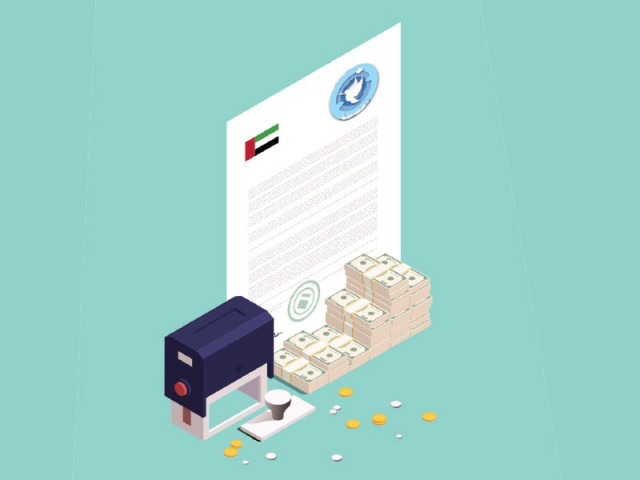Govt shuns legal route for PTCL dues
Seeks amicable resolution of $800m payment dispute with UAE

Pakistan on Friday ruled out a legal route for resolving a 16-year-old dispute with the United Arab Emirates (UAE) over the outstanding privatisation proceeds of $800 million but hoped that a breakthrough would be achieved in the next four months.
At a briefing to the Senate Standing Committee on Privatisation, Privatisation Ministry Secretary Jawad Paul said Pakistan would not take the litigation route to resolve the dispute over nearly $800 million worth of payments.
UAE’s Etisalat owes $800 million to Pakistan on account of sale proceeds of a 26% stake in Pakistan Telecommunication Company Limited (PTCL).
“But there is hope for a breakthrough by October-November this year,” said Paul. PML-N Senator Talal Chaudhry chaired the meeting, where the ministry briefed about the status of privatisation.
In July 2005, Pakistan sold the PTCL stake to Etisalat at $1.96 per share. About 1.326 billion shares were sold at a total price of $2.6 billion.
For the past 16 years, Etisalat has not transferred $799.3 million and is holding 407.8 million shares without making due payments.
Since its privatisation, PTCL has been declaring dividends and claiming technical service agreement fees. “Pakistan cannot take the UAE to court because the PTCL sale agreement has many clauses that favour the buyer,” said Talal Chaudhry.
The privatisation secretary said there was also disagreement over the number of properties that Pakistan could not transfer in the name of PTCL out of a total of 3,384 properties.
“In view of the government, we have not transferred 34 properties but the UAE said 94 properties have not been transferred,” said Paul.
The value of the non-transferred properties will be deducted out of the total outstanding dues. There is also no agreement on the valuation of the non-transferable properties.
In January last year, the privatisation ministry, in a surprising move, did not mention the outstanding dues of $799.3 million from PTCL’s privatisation in its report. The dues had been mentioned in previous reports prepared during the tenure of Pakistan Tehreek-e-Insaf (PTI) government.
Privatisation Commission Secretary Usman Bajwa briefed the committee on the enterprises put on the active privatisation list.
It seems that the first strategic sale under a government-to-government deal may not be possible.
The sale of First Women Bank Limited (FWBL) “is currently being pursued under the G2G Act with the UAE government”, Bajwa said, adding that the UAE had expressed interest in FWBL and the federal cabinet approved its sale under a direct government deal last month.
He pointed out that the firm buying the bank was not directly owned by the UAE government; therefore, Pakistan might have to take the competitive bidding route.
Committee members expressed dissatisfaction over no major strategic sale of assets over the past 15 years, questioning the purpose of the privatisation ministry and the Privatisation Commission.
The ministry’s briefing indicated that the highest loss-making sector –the power sector – was not part of the first phase of privatisation.
Bajwa revealed that the privatisation of four power generation companies would be initiated in a phased manner. But the Cabinet Committee on Privatisation told the Power Division that only efficient power plants should be carved out of the four companies and sold while obsolete plants should be disposed of by the Power Division itself.
Bajwa declared that the sale of power distribution companies (DISCOs) would only begin once the Power Division resolved the associated issues and conveyed the readiness for privatisation.
He said that their privatisation would be initiated through hiring a financial adviser after the Power Division gave a roadmap, which was being prepared with the help of the
World Bank.
“Our recommendation is that financial advisers should be hired only after the completion of technical process,” Bajwa said.
Committee members questioned the payment of millions of rupees to the financial advisers without completing the privatisation transactions.
For the new fiscal year, the Privatisation Commission has sought Rs8.2 billion, including Rs7.9 billion for payment to the advisers. The Privatisation Commission secretary said three options were being deliberated for the privatisation of DISCOs. These are privatisation, long-term concessions and retention.
The government has decided that out of the 11 DISCOs, six will be privatised, three will be given on long-term concessions while two will be retained. The World Bank is in the process of due diligence keeping in view the existing and proposed policy and regulatory regime of the power sector. A number of prior actions have to be completed before the phased privatisation of DISCOs, according to the commission.
The commission’s secretary also briefed the committee about the privatisation status of Pakistan International Airlines (PIA).
He said that six shortlisted bidders were in the process of due diligence and the government was trying that all of them submit financial bids once the date was announced.
Due to the government’s decision in 2015 to postpone the privatisation of PIA, over Rs500 billion had been added to its losses, according to the Privatisation Commission secretary.
The committee was informed that Pakistan Steel Mills had been struck off the privatisation list and it was handed back to the Ministry of Industries.











1724319076-0/Untitled-design-(5)1724319076-0-208x130.webp)






COMMENTS
Comments are moderated and generally will be posted if they are on-topic and not abusive.
For more information, please see our Comments FAQ